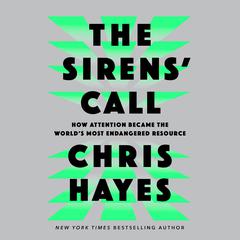 Play Audiobook Sample
Play Audiobook Sample
The Rights of Man Audiobook
 Play Audiobook Sample
Play Audiobook Sample
Quick Stats About this Audiobook
Total Audiobook Chapters:
Longest Chapter Length:
Shortest Chapter Length:
Average Chapter Length:
Audiobooks by this Author:
Publisher Description
"The Rights of Man" by Thomas Paine is a passionate defense of individual liberty and equality, written in response to Burke’s criticism of the French Revolution. Paine eloquently argues for natural rights, the sovereignty of the people, and social justice. With incisive logic, he advocates for democratic governance and economic inclusivity. This seminal work remains a cornerstone in the discourse on human rights and political reform, resonating across generations.
Download and start listening now!
"Paine's position on inalienable rights played a major role in the Bill of Rights being included in the Constitution. This work is as relevant today as when it was first written. An absolute Must-Read for anyone interested in freedom."
— Steve (5 out of 5 stars)
The Rights of Man Listener Reviews
-
" A book still relevant for those with a passion for the politics of change in their immediate society. "
— Gary, 2/17/2014 -
" It is interesting to read Paine's thoughts on government and the rights of the people and then compare what he wrote with the political life of the USA today. I think the poor man must be turning in his grave. "
— Nick, 2/6/2014 -
" One of Paine's most famous publications, which got him tried in absentia in England and sentenced to death. There are some strange aspects to this book: While presenting some very convincing arguments for representative, constitution-based democracy over hereditary monarchies, much of the text is a direct attack on Edmund Burke's prior condemnation of the French Revolution. The last part of the book is strange in that it uses actual tax revenue figures in Great Britain to argue against aristcracy, and to propose then-radical means of helping the poorer classes. Eric Froner's introduction was a much appreciated summary of Paine's life and times. I finished the book in the wee hours just as the news coverage started of millions gathering in Washington, D.C., for the inaguration of Barack Obama. I believe Obama may have actually made a reference to Paine in his inagural address. This book came to my list from the Seattle Public Library's reading list "Banned Books: 585 B.C. to 2003 A.D.". "
— Ronald, 12/29/2013 -
" I would suggest this only if you are a hardcore history or government buff. It was quite a chore to force myself through this one. "
— Joe, 12/25/2013 -
" It is my Holy Book. "
— Ryan, 12/22/2013 -
" Outdated tripe, IMO. For political students only. "
— Gavin, 12/11/2013 -
" It was all right, but I didn't enjoy it. I understand the historical significance, but I didn't enjoy the book personally. "
— Ben, 10/23/2013 -
" Read Thomas Paine and you get a sense of what a complete failure the American experiment has been--how utterly it has failed to live up to its ideals, hue totally it has been subverted by reactionaries. "
— Ralph, 10/19/2013 -
" Robespierre couldn't get 'em; and I know why. Paine was a Copperfield from the start : he walked right through the goddamn wall of china, no joke! "
— Joey, 9/18/2013 -
" Paine lasted 364 pages (Common Sense, RIghts of man) before giving in to the paternalistic tendency... and thus contradicting himself, if you ask me. "
— Joseph, 8/26/2013 -
" Essential reading if marred somewhat by it being a response to Burke. However, in the brief periods when he addresses the principles removed from the context of Burke's writing, the brilliance of his reasoning is profound. "
— Al, 8/18/2013
About Thomas Paine
Thomas Paine (1737–1809) was a pamphleteer, revolutionary, radical, liberal, intellectual, and one of the Founding Fathers of the United States. Born in Great Britain, he emigrated to America at the suggestion of Benjamin Franklin just in time to promote the American Revolution with his powerful, widely read pamphlet, Common Sense. Later, he was a great influence on the French Revolution. He wrote Rights of Man as a guide to the ideas of the Enlightenment. Despite an inability to speak French, he was elected to the French National Assembly in 1792. Regarded as an ally of the Girondists, he was seen with increasing disfavor by the Montagnards and in particular by Robespierre. He was arrested in Paris and imprisoned in December 1793; he was released in 1794. He became notorious with his book, The Age of Reason, which advocated deism and took issue with Christian doctrines. While in France, he also wrote a pamphlet titled Agrarian Justice, which discussed the origins of property and introduced a concept that is similar to a guaranteed minimum income. He remained in France until 1802, when he returned to America on an invitation from Thomas Jefferson, who had been elected president.





























